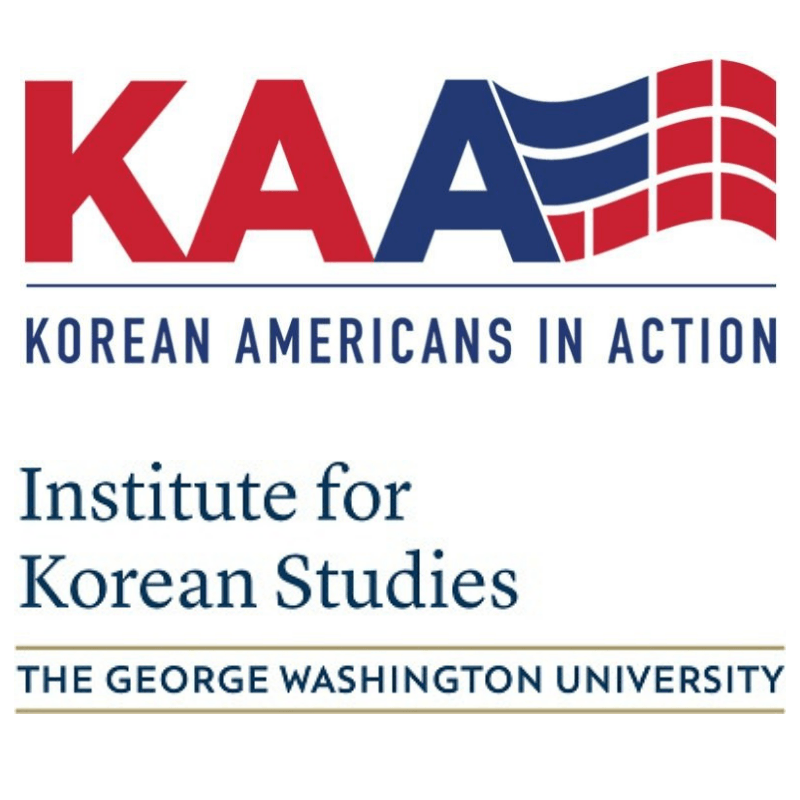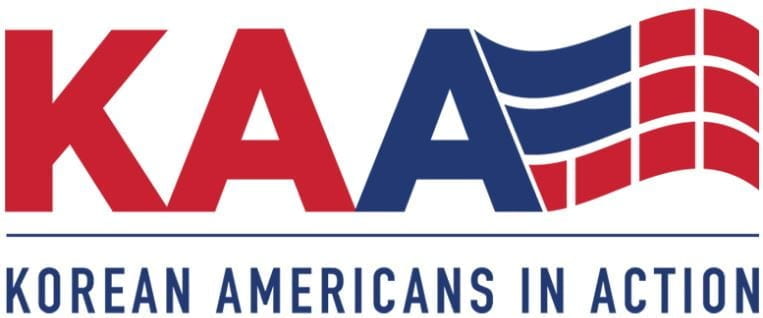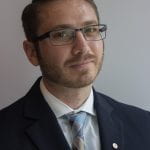Co-hosted by Korean Americans in Action (KAA) & GW Institute for Korean Studies (GWIKS)
Other Dimensions of the Impact of War
on the Korean Peninsula
October 10, Wednesday
12:00pm – 1:30pm
1957 E St. NW, Room 602, Washington, DC 20052
There has undoubtedly been a breakthrough in the relationship between the United States and North Korea, and the beginnings of real, if unsteady, progress toward denuclearization. However, during these early stages of a new diplomacy toward the peninsula, the risk of war resulting from miscalculation or sudden degradation of trust is always present.
During the year of “fire and fury” the impact of potential nuclear-armed conflict was covered widely by the media, with a focus on loss of life. Other dimensions of the impact of war were far less discussed.
One example is the U.S. economy: South Korea is the U.S.’s sixth largest trading partner; the U.S. is South Korea’s third. On Tuesday, October 2, the Economist Intelligence Unit released a report about the grave consequences to the American economy in the event of a conventional — not nuclear — military conflict on the peninsula. This and other dimensions of war, including humanitarian crises and regional impacts, will be discussed.
*Light lunch will be provided.
Panelists:
Senior Consultant, Economist Intelligence Unit
Robert PowelI is a Senior Consultant on the Public Policy, Economics and Politics (PPEP) team, and joined the Economist Intelligence Unit in May 2001. He advises private firms and government agencies, delivering studies to assist in, among other areas, scenario planning, advocacy efforts, and supply chain resilience. Prior to joining the PPEP team, he was the Business Operational Risk global manager and Regional Manager of the Middle East and Africa team. Rob holds a Masters degree from Trinity College Dublin, and has certificates in Banking Risk & Regulation and Global Oil & Gas Management. He is also a regular participant on the conference circuit, and maintains very active contacts with the media, including frequent interviews for the BBC, Bloomberg, CNBC, Fox, ABC, CNN and NPR.
Public Education and Advocacy Coordinator, Asia, American Friends Service Committee (AFSC)
Daniel Jasper is AFSC’s Public Education and Advocacy Coordinator for Asia. His role is to bring lessons learned from AFSC’s programs throughout Asia back to policymakers in Washington. His current work focuses heavily on the humanitarian, peacebuilding, and people-to-people aspects of U.S.-North Korea relations. Daniel has ten years of experience working in public policy, advocacy, and international affairs. Prior to joining AFSC, he worked at World Learning, where he administered the U.S. State Department’s International Visitor Leadership Program (IVLP). He has also worked for the Minnesota House of Representatives, the U.S. House of Representatives, and the United Nations, as well as serving as a Paul D. Coverdell Fellow for Democracy North Carolina and Peace Action – North Carolina. Daniel completed two assignments with the Peace Corps (Turkmenistan, 2008-10; St Lucia, 2013-14), where he collaborated with foreign ministries to improve local education standards.
Mark Tokola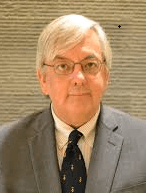 Vice President, Korea Economic Institute of America
Vice President, Korea Economic Institute of America
Mark Tokola retired as a U.S. Senior Foreign Service Officer with the rank of Minister-Counselor in September 2014 after a 38-year career with the U.S. Department of State. His last posting was as Minister-Counselor for Political Affairs at the American Embassy in London. Previously he had served as Deputy Chief of Mission at the American Embassies in Seoul, Republic of Korea; Ulaanbaatar, Mongolia; and, Reykjavik, Iceland. Among his other postings were two tours at the U.S. Mission to the European Union in Brussels, Minister-Counselor for Economic Affairs at Embassy London, and Economic Counselor at U.S. Embassy The Hague. He also served as Director of the Iraq Transition Assistance Office (ITAO) in Baghdad from 2007-2008. Mr. Tokola received the State Department’s Superior Honor Award for his work on implementing the Dayton Peace Accords while serving as Political Counselor in Sarajevo, Bosnia-Herzegovina from 1997-1999.
Moderator
Jisoo M. Kim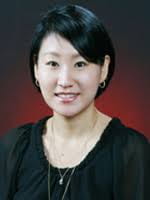
Director of the GW Institute for Korean Studies
Jisoo M. Kim is Korea Foundation Associate Professor of History, International Affairs, and East Asian Languages and Literatures at the George Washington University and Director of the GW Institute for Korean Studies. She received her Ph.D. in Korean History from Columbia University. She is a specialist in gender and legal history of early modern Korea. Her broader research interests include gender and sexuality, crime and justice, literary representations of the law, history of emotions, vernacular, and genderwriting. She is the author of The Emotions of Justice: Gender, Status, and Legal Performance in Chosŏn Korea (University of Washington Press, 2015), which was awarded the 2017 James Palais Prize of the Association for Asian Studies. She is also the co-editor of The Great East Asian War and the Birth of the Korean Nation by JaHyun Kim Haboush (Columbia University Press, 2016). She is currently working on a book project, tentatively titled, Suspicious Death: Forensic Medicine, Dead Bodies, and Criminal Justice in Early Modern Korea.
